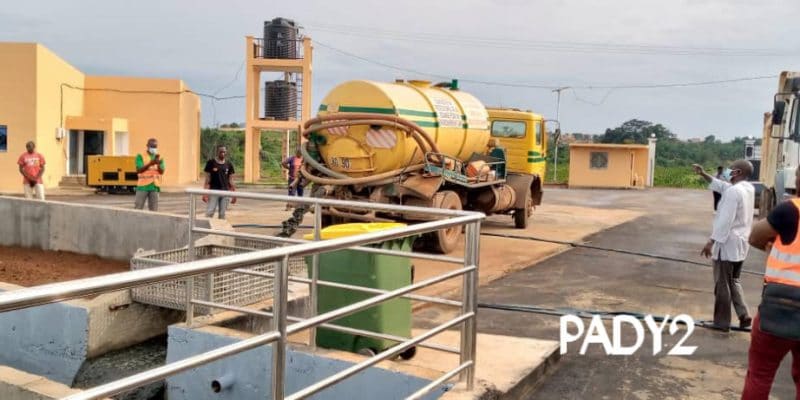The Yaoundé City Council is inaugurating a sewage sludge treatment plant in Cameroon's political capital. The facility has a capacity of 200 m3 per day.
Yaoundé, the capital of Cameroon, has a sewage sludge treatment plant. The new facility was recently commissioned by Luc Messi Atangana, the mayor of Yaoundé. The plant has a capacity of 200 m3 per day. The sewage plant will serve the more than 4 million inhabitants of the city of Yaoundé.
In the absence of an adequate public structure, the people of Yaoundé were, until a few weeks ago, obliged to seek the expertise of private companies to manage their faecal sludge. Faecal matter which then ended up in the environment, polluting the water and presenting health risks.
The new sanitation project was implemented by the Yaoundé Urban Community (CUY), through its technical services, and with the support of a cross-sectorial consultancy firm, Delvic-Era Cameroon. The International Association of Francophone Mayors (AIMF) has allocated 4.3 million euros (more than 2.8 billion CFA francs) for the work.
Towards the structuring of the faecal sludge management sector
Very often, faecal sludge from septic tanks is dumped into the environment, in the absence of adequate disposal systems. The commissioning of the Yaoundé faecal sludge treatment plant should contribute to the structuring of the sector, and thus pave the way for the recovery of faecal matter as is the case in other African cities. “We invite companies to comply with the provisions setting out the conditions for carrying out the activity of removal, transport and dumping of faecal sludge from non-collective sanitation facilities in general. To do this, each operator must obtain an agreement, equip each emptying truck with a GPS and a licence,” says Luc Messi Atangana, the mayor of Yaoundé.
Read Also – Urban sanitation, a major challenge for sustainable cities in Africa
The sludge from the treatment can, for example, be converted into natural fertiliser, reducing the excessive use of chemical fertilisers. The material can also be used to generate electricity by burning the sludge, thanks to recent technologies.
Inès Magoum







